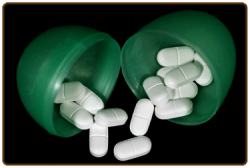Vicodin Rehab
The prescription pain killer, vicodin, is a type of opiate substance. Although the drug is commonly used for medical purposes, it is also one of the most commonly abused prescription drugs in the United States. Vicodin often causes a euphoric effect on the brain, which makes it a preferred drug for recreational purposes. Unfortunately, the medication is highly addictive and has many negative health effects if it is used inappropriately. Rehabilitation for the drug is designed to help work through the addiction and educate individuals about the impact of the drug.
Start of Drug Abuse
Due to the medical uses of the drug, vicodin is usually started for legitimate and legal reasons. Doctors often prescribe the opioid medication to provide pain relief after an injury, surgery or similar situation. Although some doctors have specific usage instructions to reduce the risk of addiction, many suggest using the drug as needed to relieve pain until the injury heals.
Although the initial use of the drug is usually legitimate, many individuals become addicted and start taking more of the drug than necessary for pain. Over time, drug abuse can lead to changes in behavior, illegal methods of obtaining the drug and lying to doctors for a legitimate prescription that is not needed.
Signs of an Addiction
 Since the drug is often given for legitimate reasons, it is easy to overlook the signs of a developing addiction. If vicodin was prescribe for personal pain or given to a loved one for an injury, then recognizing the signs of a growing addiction will make it easier to get professional treatment.
Since the drug is often given for legitimate reasons, it is easy to overlook the signs of a developing addiction. If vicodin was prescribe for personal pain or given to a loved one for an injury, then recognizing the signs of a growing addiction will make it easier to get professional treatment.
Signs of a developing addiction include:
- Changes to mood or mood swings
- Developing depression
- Feeling anxious
- Insomnia
- Tolerance of the drug that leads to taking higher doses
- Looking for a new doctor or several doctors for a prescription
- Hyperactive behaviors
After identifying a developing addiction it is important to seek help. Whether it is a personal observation of changes after taking the drug as prescribed or a loved one notice the growing problem, seeking professional help will make it easier to take the first steps to overcoming the physical dependency on vicodin.
Rehab Expense
Due to the growing rate of vicodin addictions, many rehab facilities are offering treatment solutions. Unfortunately, the cost of rehabilitation is often expensive.
Luxury rehab facilities will have the highest cost associated with treatment. The expense is usually not covered by insurance because the facilities rarely take insurance payments. In a luxury facility, patients must pay the full cost of treatment.
Facilities that are run by the state or do not have the luxury elements are usually more budget friendly. Since the programs will accept some insurance policies, it might be possible to get financial help paying for the treatment.
Treating the Addiction
A rehabilitation program usually follows a similar format, regardless of the expense or type of facility. In most cases, the treatment aspect of the program includes detoxification, counseling and aftercare services.
The detoxification, or detox, is the first step of overcoming addiction to vicodin. During the detox process, doctors supervise patient vital signs and provide care when the withdrawal symptoms become dangerous or very uncomfortable. Detox programs usually take three days to one week to flush the drug from the system.
Counseling is another common element of treatment. Most programs will provide group therapy and individual counseling. During individual counseling, patients can expect to discuss their personal situation, the start of drug abuse and the alternative coping methods that might work on an individual basis. Group therapy is designed to help connect to others and focuses on teaching the complications that come with drug abuse.
Aftercare services are the continued treatment, counseling and requirements to help reduce the risk of relapsing on vicodin. Although specific aftercare requirements will vary, most programs provide counseling services once a week and suggest group programs to reduce the risk of relapsing on the drug.
Dealing with a vicodin addiction is an important part of recovering a normal life. Although vicodin is difficult to give up after an addiction develops, professional care and medically supervised detoxification can help. Due to the health risks that come with a growing addiction, finding the right treatment facility and overcoming the drug is important. With help, it is possible to fight an addiction.








